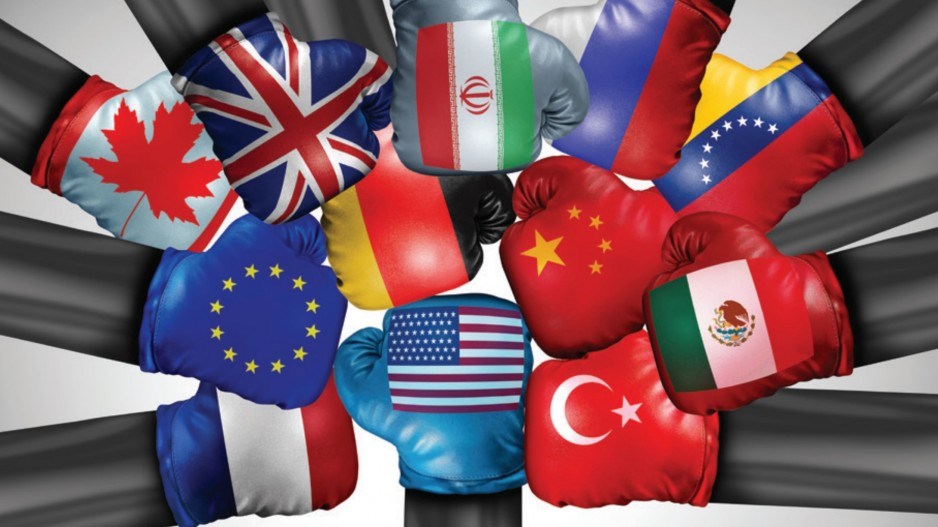While trade missions typically involve officials going abroad to promote specific industries or products, there may be a new trend on the horizon: the promotion of laws and regulatory standards.
That was the case for B.C. Jobs, Economic Recovery and Innovation Minister Ravi Kahlon, who recently concluded a multi-week visit to Europe to tout not products but the province’s environmental, social and governance (ESG) values. It’s a move that indicates a shift in the fundamental thinking of pursuing trade relations.
The new emphasis on law, legal standards and regulations when it comes to social and environmental governance is strong in jurisdictions like Europe, Kahlon said, which played into B.C.’s decision to centre its trade mission theme around the topic.
The new direction, Kahlon added, allows the province to pursue a wide range of sectors for engaging a trade partner. Now the entry point of discussion isn’t a given commodity, but the fact that a partner market can be assured that B.C. goods are produced in a legal standard that reflects shared values on issues like labour rights and environmental protections.
“The desire [for like-minded partners] to collaborate with B.C. is very strong,” Kahlon said of his trade mission. “We’ve been meeting with various groups and … advancing the fact that not only do we have critical minerals here in British Columbia, but we also produce them in a very sustainable and environmentally friendly way.
“We’ve also advanced our ambitions on forestry and have had talks with companies about hydrogen and attracting investment to British Columbia,” he added. “So we have not focused on one sector particularly. It’s a very, very broad area of engagement.”
The trade visit ultimately produced two deals: one with the Netherlands on resource-sharing in agritech for food-security support and another with Finland on co-operation in mass-timber and the forest bio-economy.
The fact that many Western countries are shifting to leading with the law-regulatory angle in advancing trade agendas does not come as a surprise to Werner Antweiler, an associate professor of economics at the University of British Columbia and a leading expert on trade and global supply chains.
Antweiler said Russia’s invasion of Ukraine this year jolted many liberal democratic markets to reassess globalization – and while confidence in the system has been shaken, the solution isn’t deglobalization. Instead, it’s re-globalization with a clearer legal framework that fundamentally includes value-based principles, he said.
“Essentially, trade promotion and new free trade agreements need to take ESG into consideration to prevent what economists describe as ‘leakage effects.’ That is, production shifting from environmentally and socially responsible jurisdictions to non-conforming jurisdictions,” Antweiler said. “In this time and age, we simply cannot ignore that sourcing goods from the cheapest source can sometimes mean sourcing goods from polluting sources or countries that violate human rights.”
That means that the solution – and where the new generation of globalization efforts may go to next – is a combination of trade agreements with clear ESG components and protocols for compliance, as well as trade promotion that tout a specific, legal certification process for an exported/imported good’s ESG integrity.
Some major trade agreements have already started moving into these areas in recent years. The Trans-Pacific Partnership, for example, has implemented items such as labour, environmental and intellectual-property protection laws into its requirements for joining the 11-nation trade pact.
Other similar bloc deals, such as the China-led Regional Comprehensive Economic Partnership, have not.
“Companies will ordinarily converge on least-cost solutions that pursue comparative advantages regardless of other societal objectives,” Antweiler wrote in an April report. “Such objectives can only be imposed by influencing markets, by creating incentives or imposing regulatory constraints for resilience, retractability and responsibility.
“A combination of green/ethical consumerism and green taxes on negative externalities can go a long way to make international trade more sustainable environmentally and promote responsible production methods and labour standards,” he stated in the report. “… It means that we can no longer avert our eyes from seeing where and how our consumer goods are produced. We need greater transparency, visible to all of us, about which products meet which standards.”
For Kahlon and B.C., the recent foray into Europe with legal standards as the main angle was successful to the point that it will continue to be a focus as officials look abroad for partners in the province’s post-pandemic recovery.
“We saw that we have lots of interest [from Europe] in companies here in B.C., as they want to find partners that have similar values when it comes to ESG,” Kahlon said. “We saw that there was a really good opportunity to advance those talks and tell the B.C. story … and we are coming away from this with identifying some really exciting opportunities in the years ahead.”
Antweiler’s report on re-globalization can be read at wernerantweiler.ca.




